These Fascinating Ancient Greece Facts May Even Shock A History Professor
Considered as one of the oldest civilizations in the world, ancient Greece remains at the precedent of holding that prestigious title. There are loads of interesting facts and gems of incredible information about ancient Greek civilization that you probably had no idea existed. These cool nuggets of factoids and other intriguing informational details might even bewilder some of the most elite history professors out there!
The Yo-Yo Was Invented By Them
The ancient Greek language is certainly one of the most primeval forms of language that exists in the history of our world. The ancient Greek civilization is also staunchly proud of a few of its oldest inventions. One of them is the yo-yo, which was believed to have been invented in 440 B.C.E, and is also thought to be one of the earliest toys.
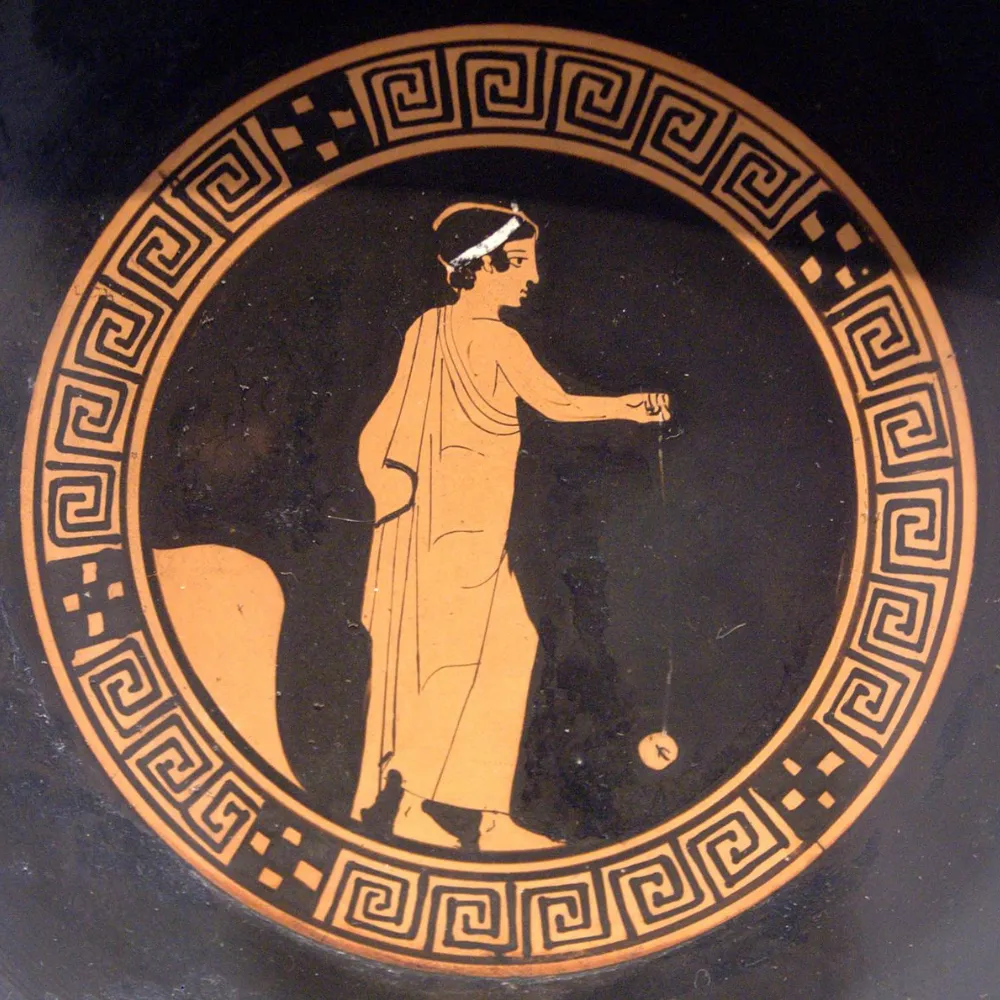
Source: gizmodo.com
The yo-yo was so popular that pretty much every household in ancient Greece had one. It was made out of wood, metal, or painted terracotta disks. Images of gods from the Greek pantheon were decorated all over the yo-yo, as well.
It’s Home To One Of The Oldest Languages In The World’s History
Not only is ancient Greece known for creating one of the oldest toys, it also contains one of the world’s oldest languages: Greek. Invented in the early part of the 8th century B.C.E., the Greek alphabet was a crucial component of ancient Greece. Additionally, many important works and texts came out of this civilization (for example: the Iliad, Aristotle and Plato’s works were written originally in Greek).
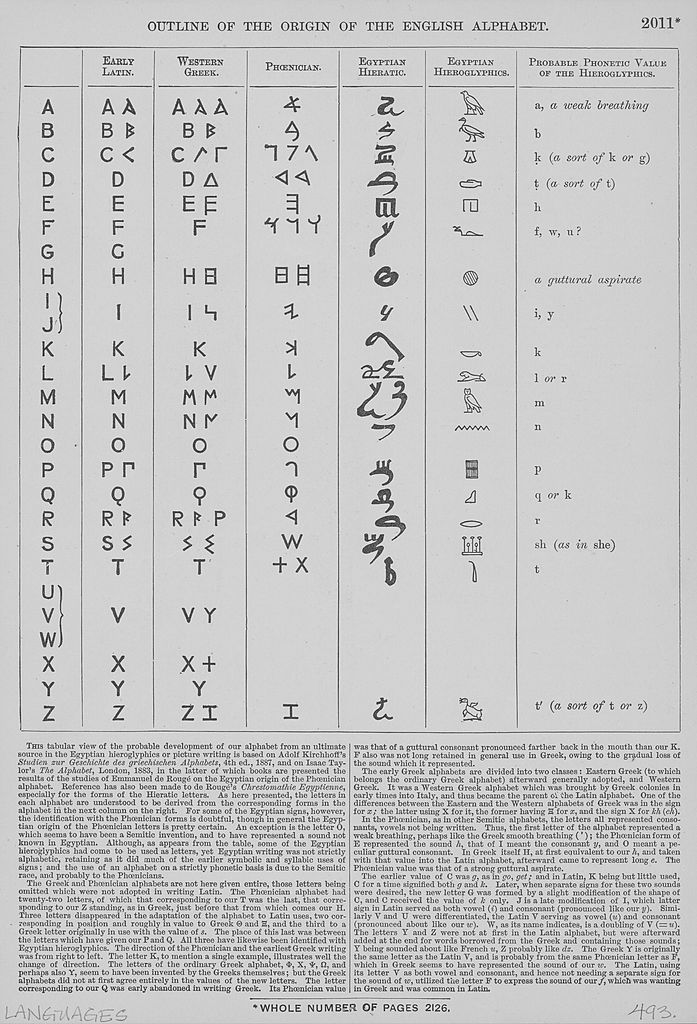
Source: Archive Photos/ Getty Images
The Latin, Armenian, Coptic, and Cyrillic systems of writing were all sourced from the Greek language. And, the Greek letters were also the first alphabet script ever written to have distinct letters for vowels.
One Of Their Beloved Gods Was Dionysus
Dionysus (who was also identified as Bacchus) had the distinguished title of being one of the most worshiped and well-known gods of ancient Greek mythology. He was also known as the God of Wine and considered to be – along with Demeter – Earth’s supreme deity.
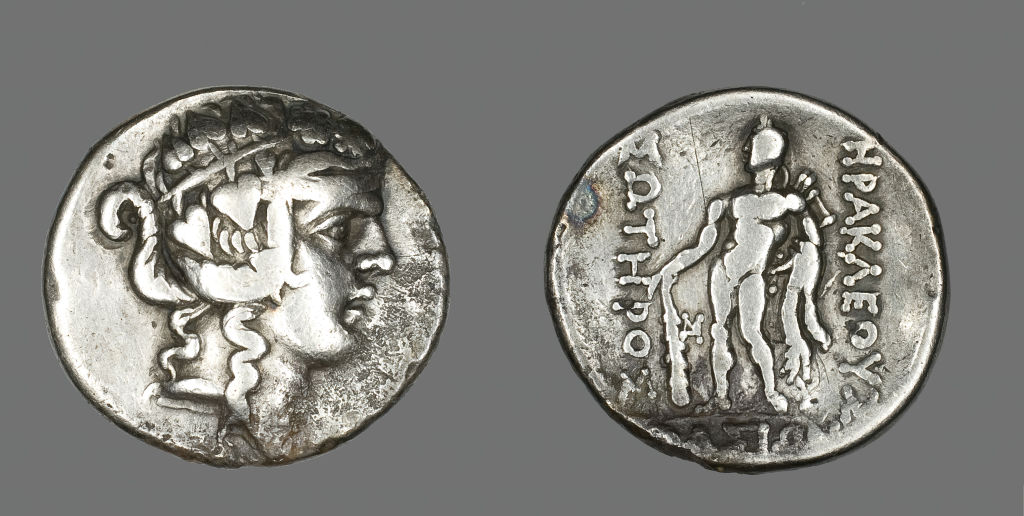
Source: Heritage Artheritage/ Getty Images
He’s said to have taken birth out of the fire and was fondly labeled as the god of grape, harvest, and fertility. As a patron of the arts, some tragic and comic plays were put together in this honor.
Weak Infants Were Thrown Into Pits
Per a wildly popular Spartan myth, infant boys who possessed weakness were apparently thrown into a pit. This fact was brought to light by Plutarch, the ancient Greek historian. But, putting aside what he said, his claims may not have been completely accurate.

Source: agathe.gr
According to current scientists, this practice didn’t even occur. The beliefs of these scientists delegitimize Plutarch’s theory about turning away from the infants’ cries and the state’s involvement in determining the fitness of the babies to bed.
Some Intel On The Greek Gods
Zeus is perceived as the head honcho of the Greek Pantheon in Greek mythology. This statement, however, is not entirely correct. To break it down for you, Ancient Greece was separated into different independent states, and each polis had its own cult.
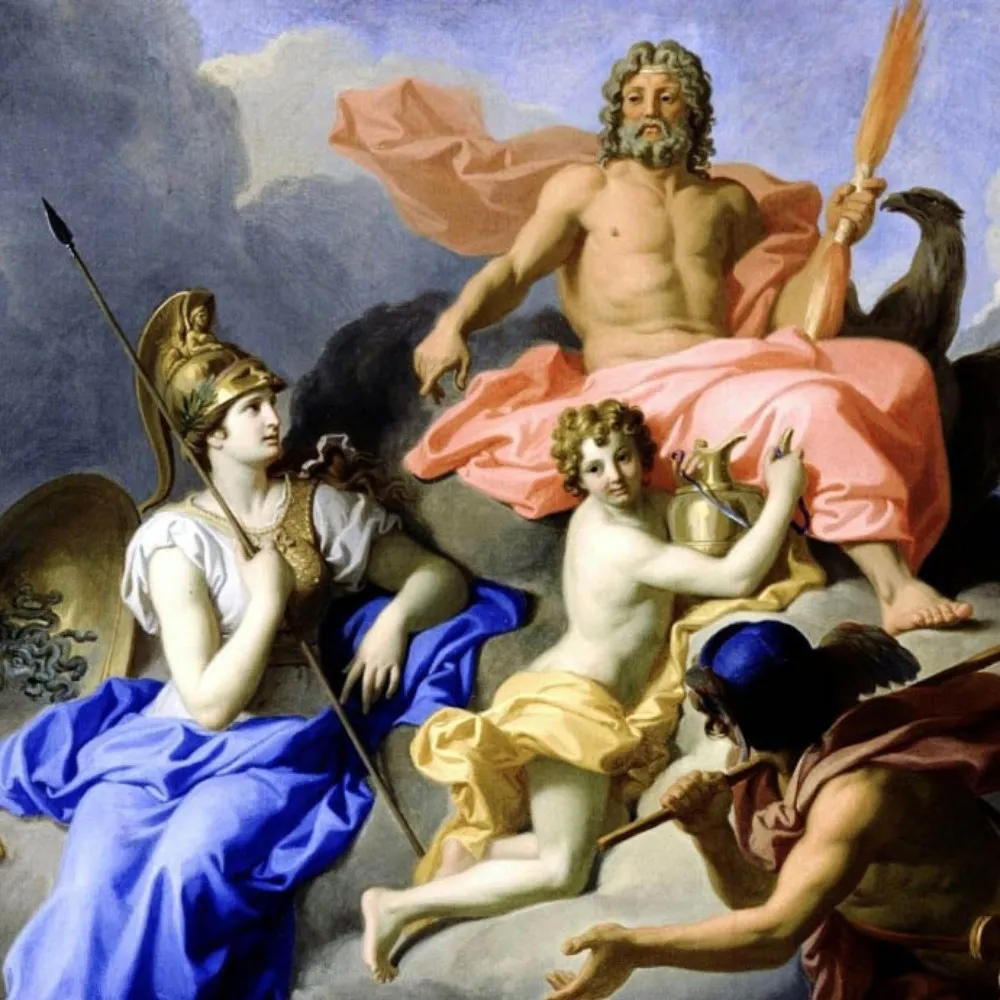
Source: Wikimedia Commons
The ancient Greeks believed in no set number of gods and they practiced a concept referred to as henotheism. Henotheism is a term which means worshiping one god from the pantheon, while not blatantly denying the existence of other gods.
The Greeks Made A Royal Faux Pas
Ancient Greek heroes were far from perfect, and that goes for other Greek figures, too. The pantheon of gods weren’t excused from the awful things they did sometimes, despite their god complexes. Some of the gods such as Uranus, Athena, Zeus, Hades, and Jason, had their moments of being quite terrible.
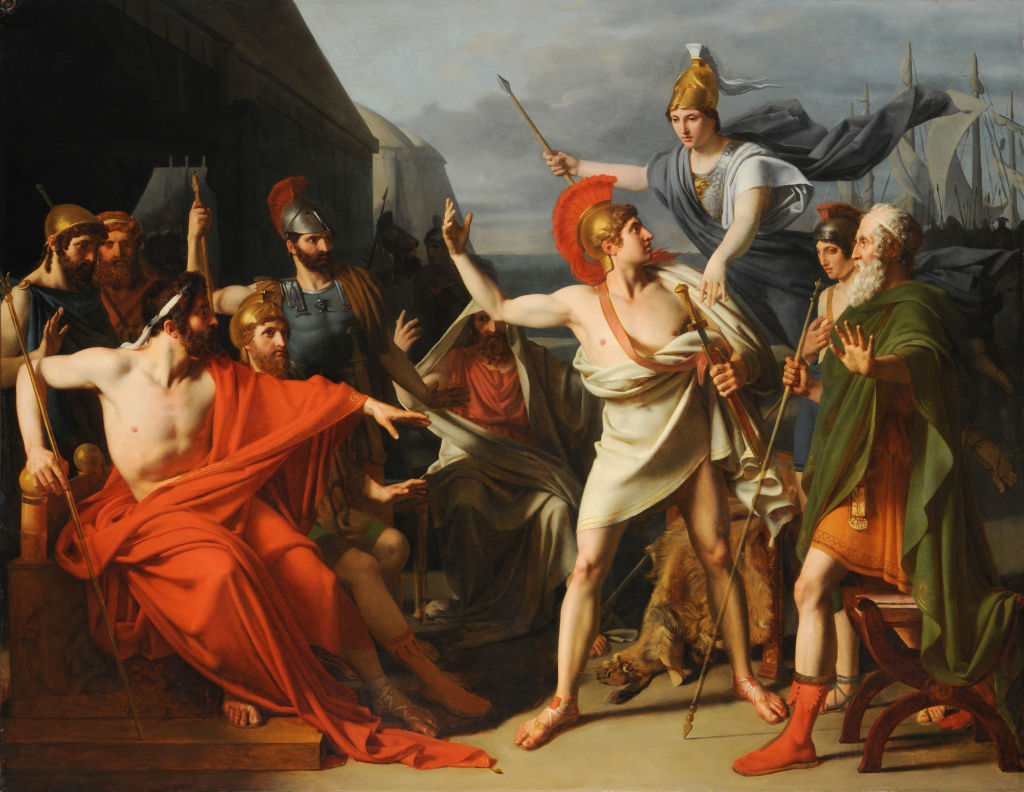
Source: Fine Art Imagesheritage/ Getty Images
Achilles and Heracles are the subjects in this instance. Achilles, the greatest of the Greek warriors, abandoned a group of his friends after having a quarrel with them during the Trojan War. Heracles, the strongest of all mortals, is believed to have had multiple affairs even though he already had four wives!
There Was No Shortage Of Unappetizing And Gross Food
The Laconian food of ancient Greece was beyond inedible. A standard meal of theirs was essentially black gruel, which was believed to have consisted of a mix of lentils and beef blood.

Source: AtlasObscura.com
Spartans often made fun of this classic dish (if it can even be called that). The nasty and unappetizing black gruel was usually equated with Spartan courage. A Spartan was only a Spartan if he could stomach eating that meal every single day. Bless them! We wouldn’t have the guts.
All About The Female Hetaeras (Hetaira)
During the ancient Greek times, women were often considered as second class citizens, and possessed an even lower status than men. Regardless, some females did have independence, and they were referred to as hetairas.
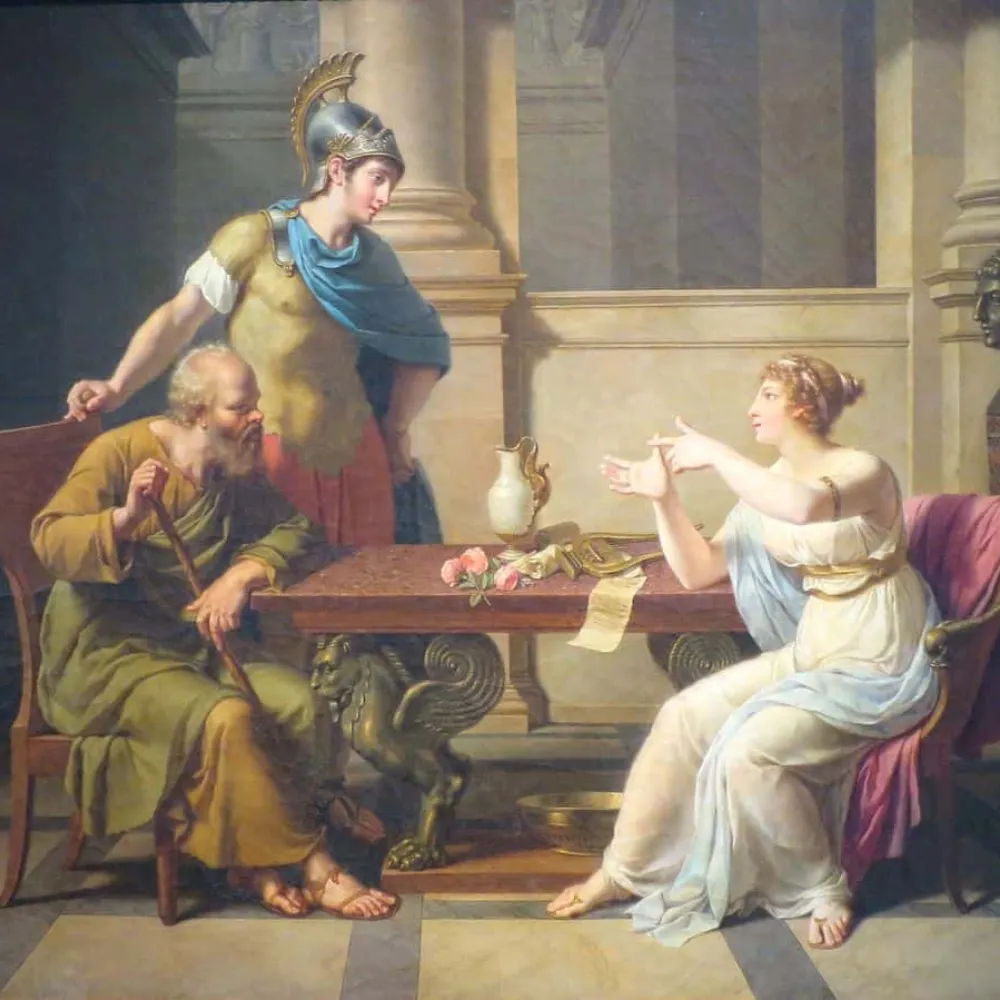
Source: Wikimedia Commons
At the core, hetairas were high-profile escorts who participated in the world of intellectual conversations. Unlike lower-profile escorts who populated another part of ancient Greece, hetairas had some wealthy lovers. If a woman wanted to become a hetaira, she would need to study at a certain school from the time she was a child.
The Ancient Greeks Were Particular About How They Ate Their Food
As most people are probably aware, the ancient Greeks would recline while consuming food. However, that statement may not be based entirely in truth. This notorious habit first began in 7th BC and was adopted by the Romans later on.
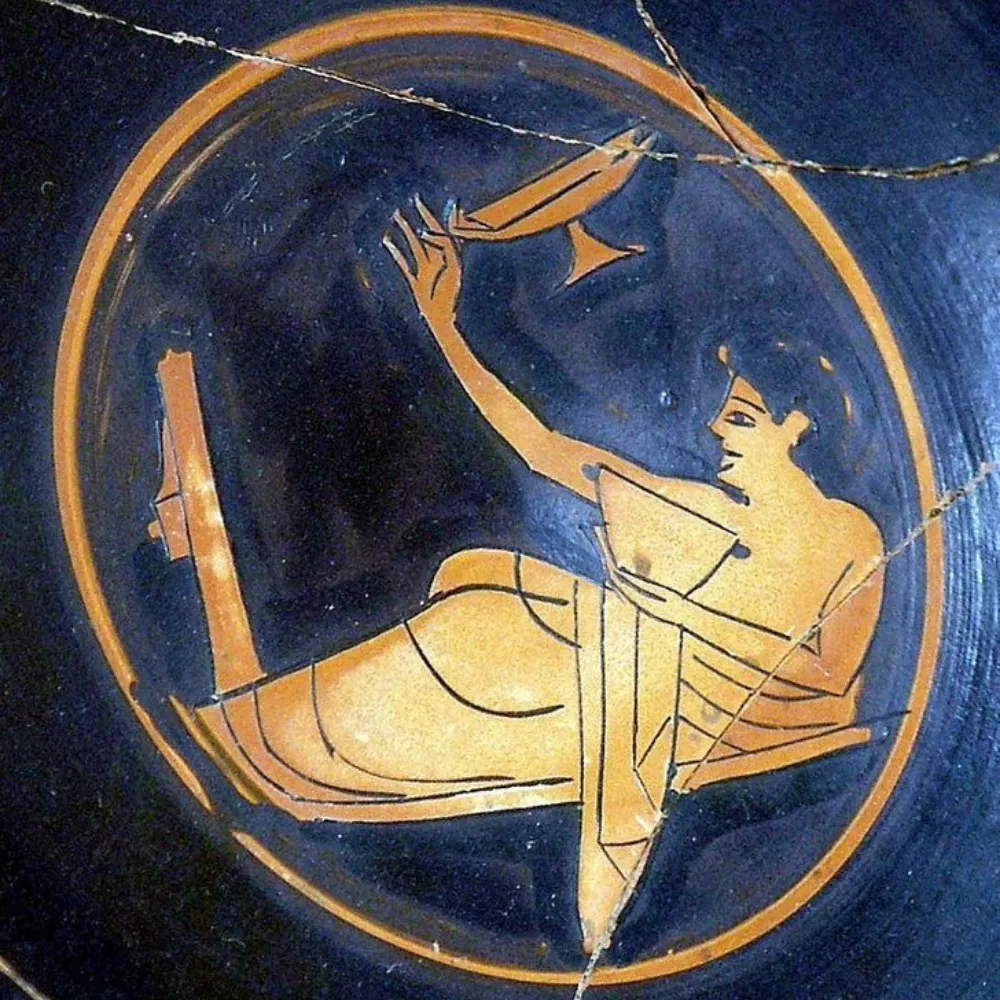
Source: Wikimedia Commons
The reason the ancient Greeks ate that way was because it symbolized status and societal power. Only men were able to recline and not women, which isn’t surprising. Usually, the women were banned from the banquet halls and, rarely, if allowed, they were expected to eat while sitting.
They Were Extremely Messy In Every Aspect
It may be a surprise (or not) that the ancient Greeks weren’t the cleanest or most organized folks. There was no such thing as Marie Kondo-ing their space or keeping in line with the phrase, “Cleanliness is next to godliness.” Keeping their spaces as dirty as they possibly could was the goal. Their homes were typically darkened by the soot smoke that constantly emerged from all the meat they cooked.
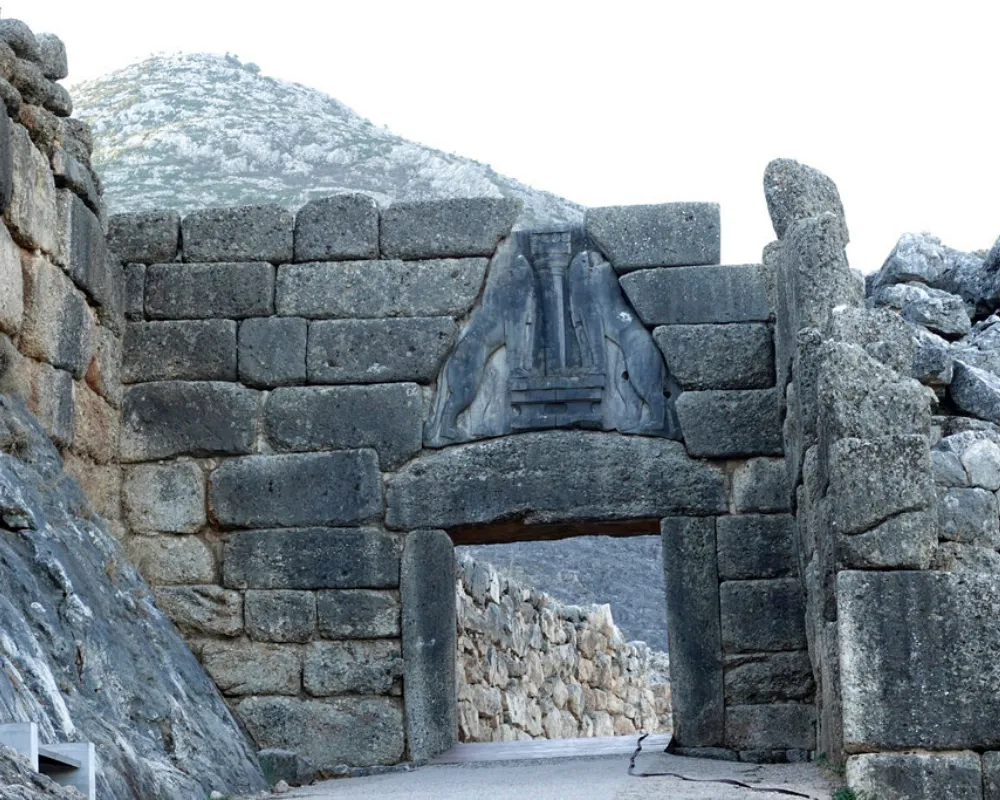
Source: sfgate
In a poem by Homer, he described the extreme black soot as destroying the weapons that hung on the walls of common Greek households. Basically, black walls were not unusual for those times.
The Children Of Sparta Had Rough Upbringings
Spartan parents were known to be extremely hard and strict on their kids, possessing a parenting style that was almost authoritarian-like. Once a Spartan child turned seven, they were sent off to a special military camp.
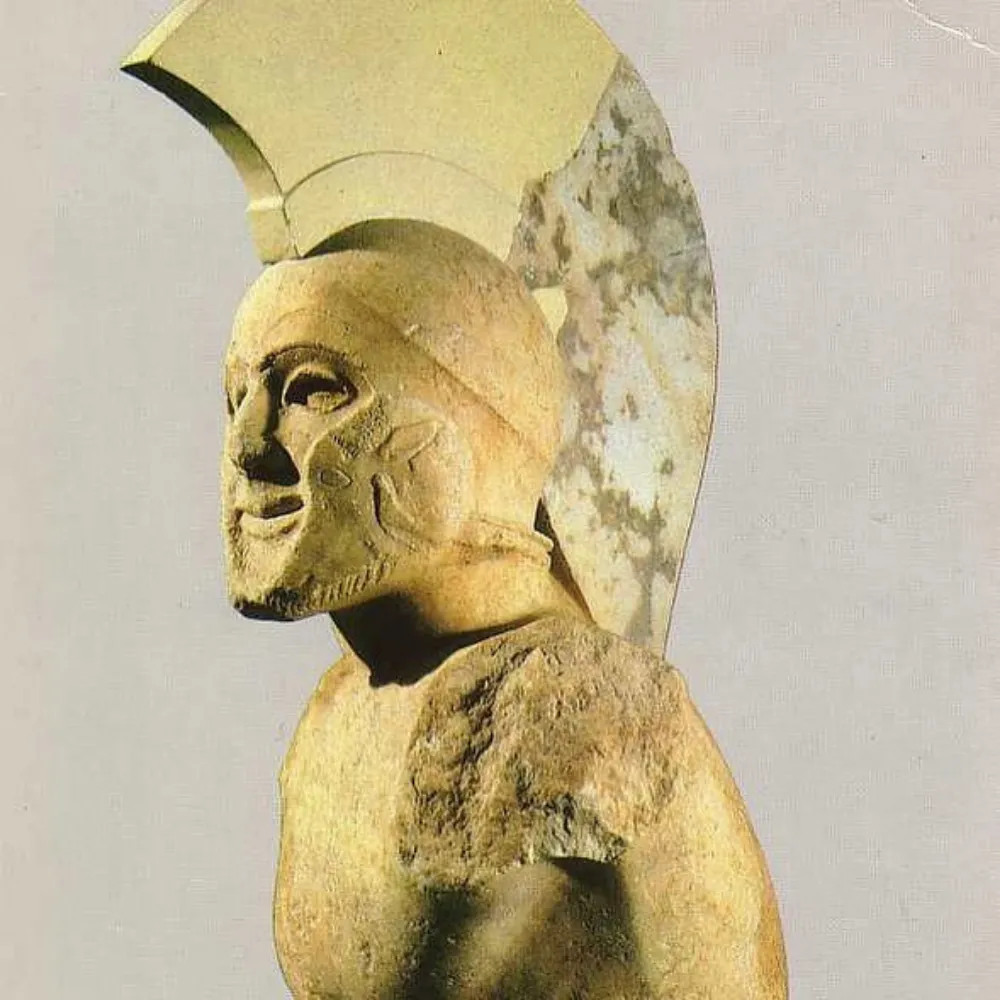
Source: ThoughtCo.com
Spartan boys had to survive naked and weren’t allowed to wear clothes until he was 12-years-old. In addition to these hardships, they were expected to prepare food for themselves, while also excelling in swordsmanship, spear-throwing, and basic physical fitness.
Women Weren’t Allowed At The Olympics
During the time of the ancient Greeks, females were banned from attending and participating in the Olympics. The Olympics were, evidently, a male-dominated event. Historians have come up with a few possible reasons as to why women were excluded from the Olympics.
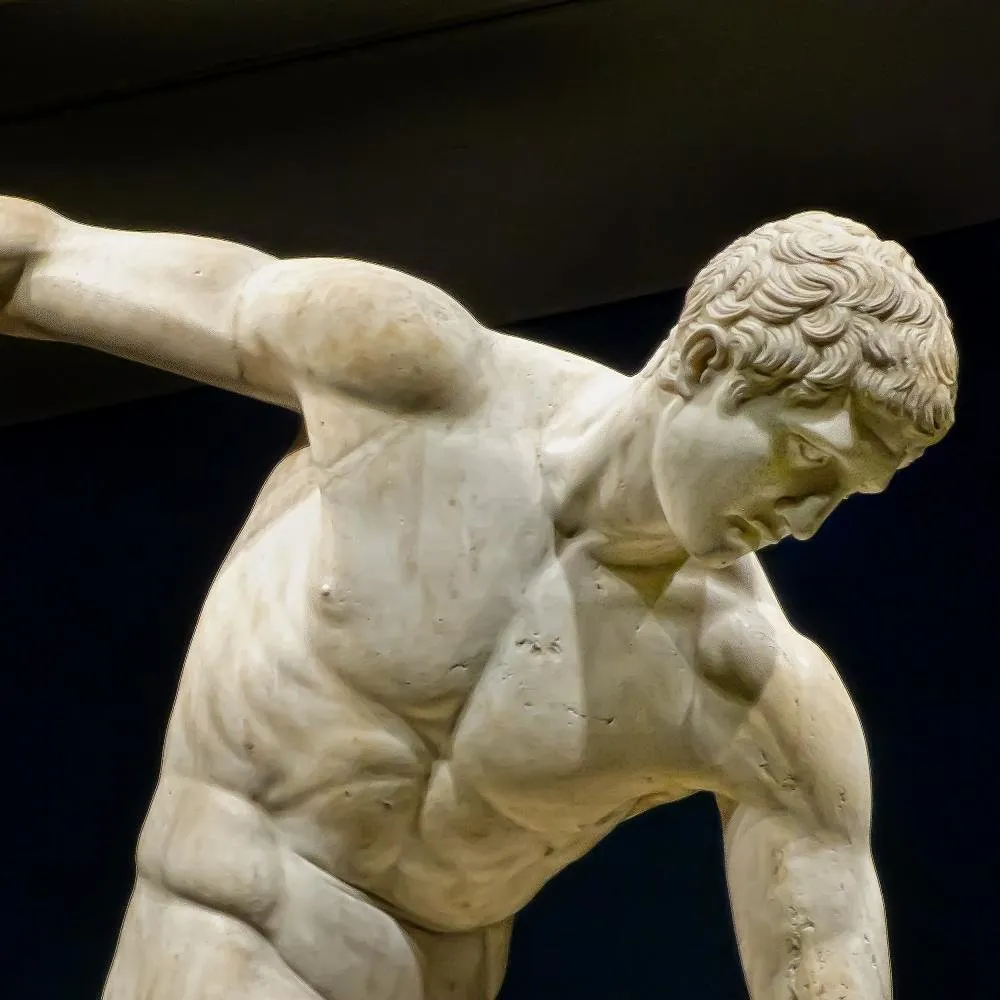
Source: lonelyplanet.com
A primary reason, according to historians, is that the training for the Olympics took up to ten months. Women were already considered second rate citizens in ancient Greek culture, so they deemed them unfit for this immense physical challenge.
Epicurean Meals Were Banned By The Spartans
In an ancient Spartan household, delicacies were absolutely not welcome. The lentils with beef blood? That was the norm. To phrase it politely, a Spartan meal was not a lavish affair, but rather humble. There was no such thing as epicurean meals for the ancient Greeks.

Source: thewholegeek
Usually, lentil soup or barley gruel with cabbage and turnips was considered a classic Spartan meal. Spartans enjoyed eating relish grain-based meals and ate barley with goat cheese and wine, according to Homer.
Ancient Greek Symposiums Were Known As The Hallways Of Gaiety
Symposiums were yet another male-dominated area defined by outrageous bacchanalian debauchery. In ancient Greece, these males-only banquets were hallways of gaiety full of music, dancing, and other celebratory means.
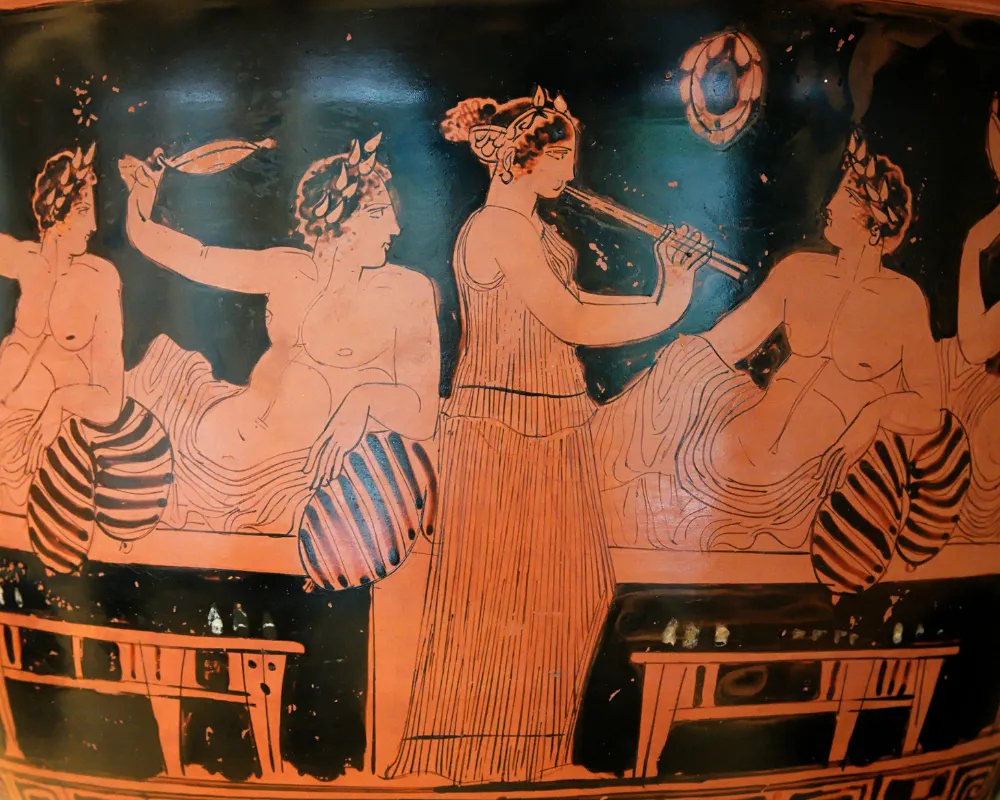
Source: wikiwand
A symposiarch was a person whose job was to be in charge for the night at the symposiums. Competition-based games were organized in this social gathering. Nowadays, the word symposium has changed over time to be categorized as an academically-based congregation.
Spartans Knew How To Suit Up For War
Among all the other things that Spartans were skilled at doing, they definitely had a penchant for dressing up for warfare properly. They donned heavy equipment and protective gear in war. A hoplite (a Spartan soldier) wore a breastplate, ankle guard, and a huge helmet made of bronze before entering the battlefield.
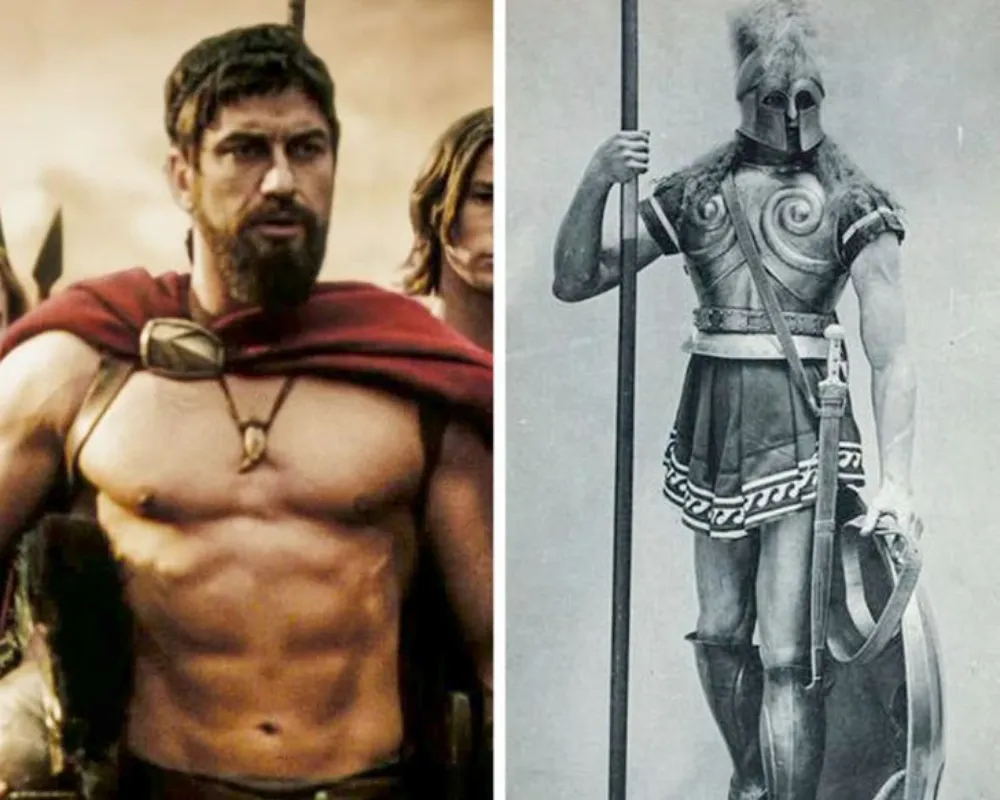
Source: Wikimedia Commons
They also used to carry a round shield that was also composed of bronze, as well as wood, a long spear, and sword. As portrayed in the war movie 300, Spartan soldiers typically had long hair and sported a red cloak.
The Olympic Truce Ended Or Postponed All Military Wars
Towards the beginning of the Olympics, every ancient Greek military war was halted or postponed by three months. The Olympic Truce is what this tradition is known as, and dates back to 776 BC. It started as a method of making sure that the host city would not be attacked during the Olympics.
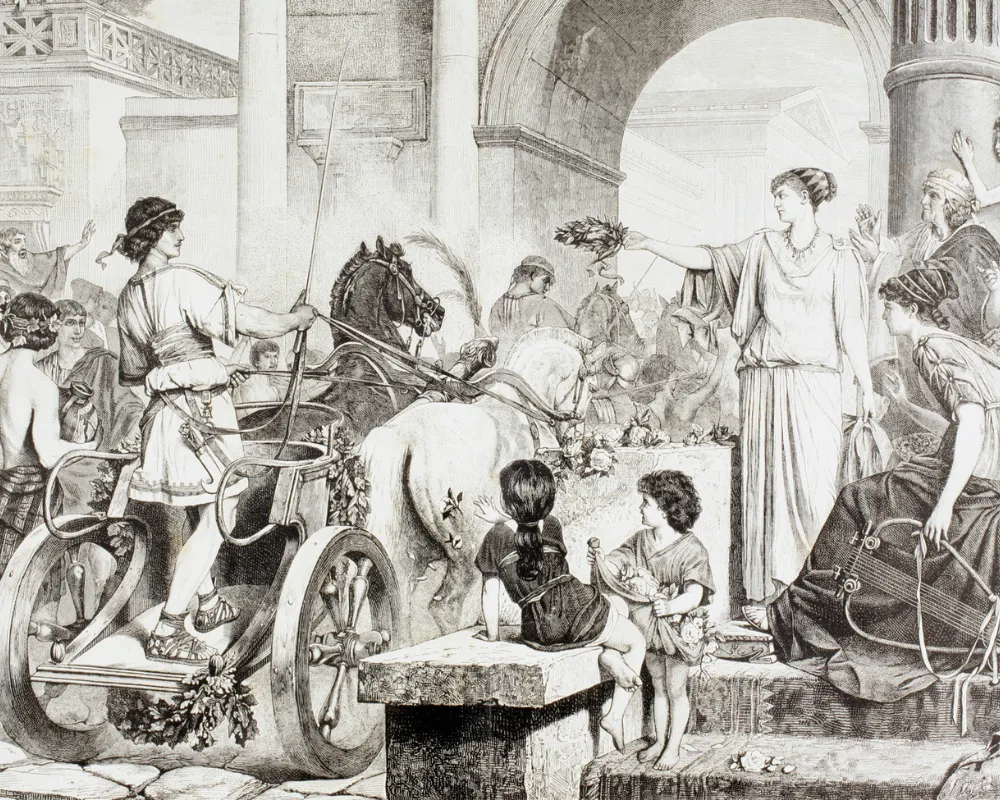
Source: Vintage Design Pics/ Fine Art America
Without the stress of worrying about commuting, the Truce allowed visitors to get to the site of the games unharmed. Wars obviously still happened, just not at the same location where the Olympics were being held.
The Sacred Band Of Thebes Existed Before The Spartans
Considering what the Spartans encountered and dealt with on a daily basis, they had to acquire large amounts of courage, endurance, and self-control. Forever cemented in popular culture, the 300 Spartans and the movie with the same name, stemmed from the Battle of Thermopylae.
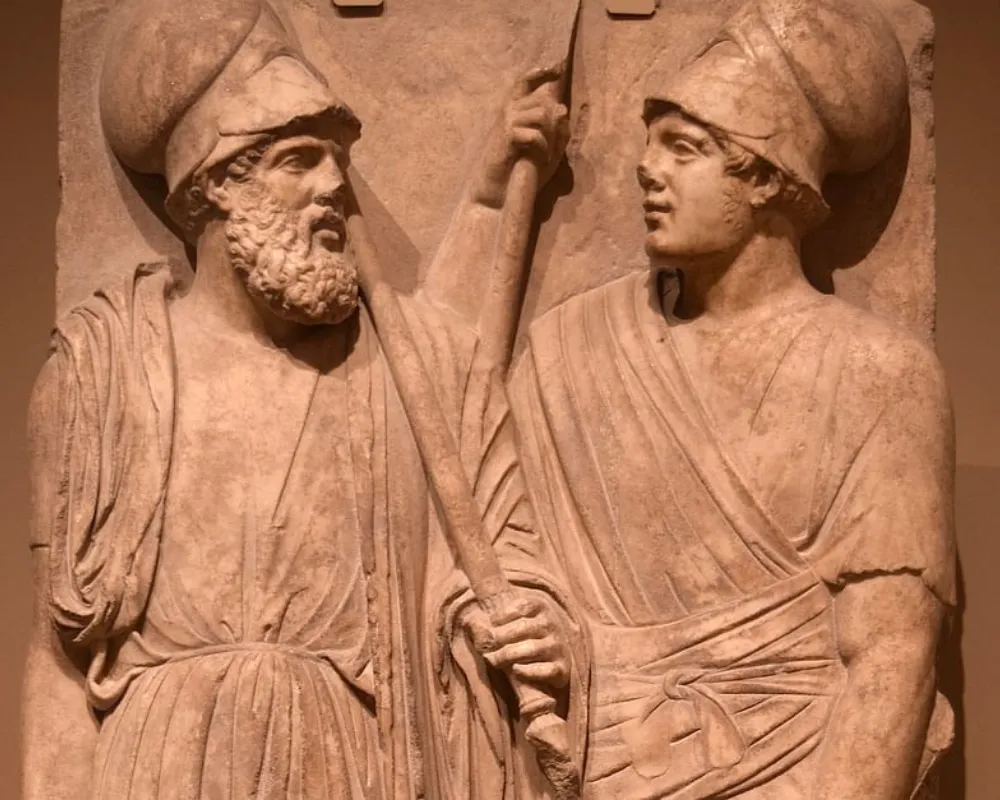
Source: Pushkin Museum, Moscow via worldhistory
Spartans were notorious for being difficult to defeat, until the Sacred Band of Thebes defeated them. This band of 150 pairs of male lovers rose to prominence with the Battle of Leuctra in 371 BC, and they were the ones who stopped the primary dominance of the Spartans.
Cinderella Was Inspired By Rhodopis
The famous fairy tale of Cinderella took its inspiration from the story of Rhodopis, an iconic hetaira figure. In ancient folklore, when Rhodopis was taking a bath, an eagle absconded with her slippers and dropped it into an Egyptian pharaoh’s lap.
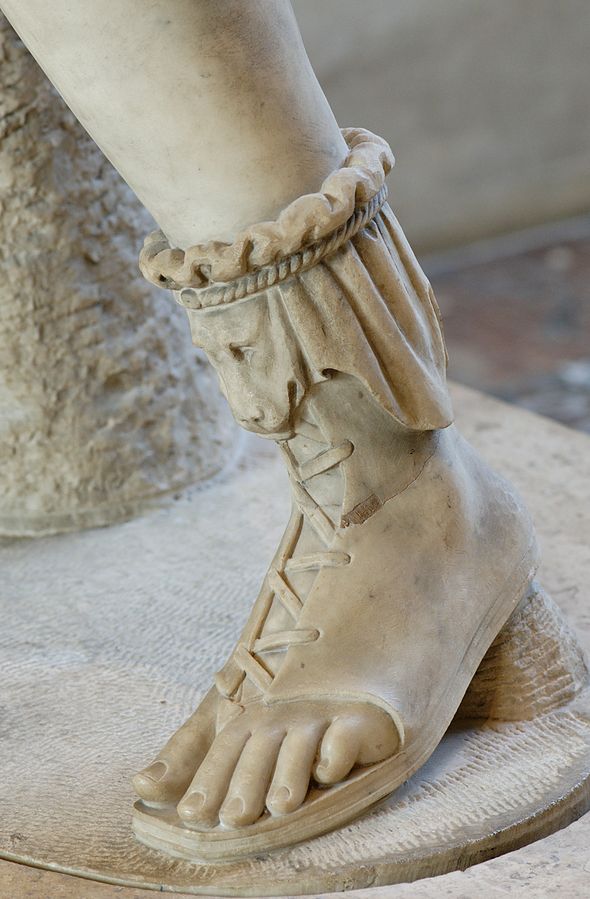
Source: Wikimedia Commons
This pharaoh was fascinated by the mysterious slippers so he decided to enforce a search party to uncover their owner. As the story goes, his search led him right to Rhodopis. They ended up getting married to each other, with her eventually gaining the prestigious title of Queen of Egypt.
Women Back Then Were Considered Objects
During the times of the ancient Greeks, women had zero autonomy or virtually any rights. Basically, they were the lowest of the low, and primarily relied on their husbands. An Athenian woman was seen as an object in a man’s household. So, females in ancient Greece were commonly denied their personhood.

Source: Wikimedia Commons
Women were encouraged (or forced) to stay inside the home and prohibited from going outside by themselves. Also, it was sacrilege to say a married woman’s name in public.
People In Ancient Greece Were Handsomely Compensated
Every month, the ancient Greeks accumulated a handsome salary versus other civilizations. In the 4th and 5th century B.C.E, ancient Greece became the most developed country in the world.
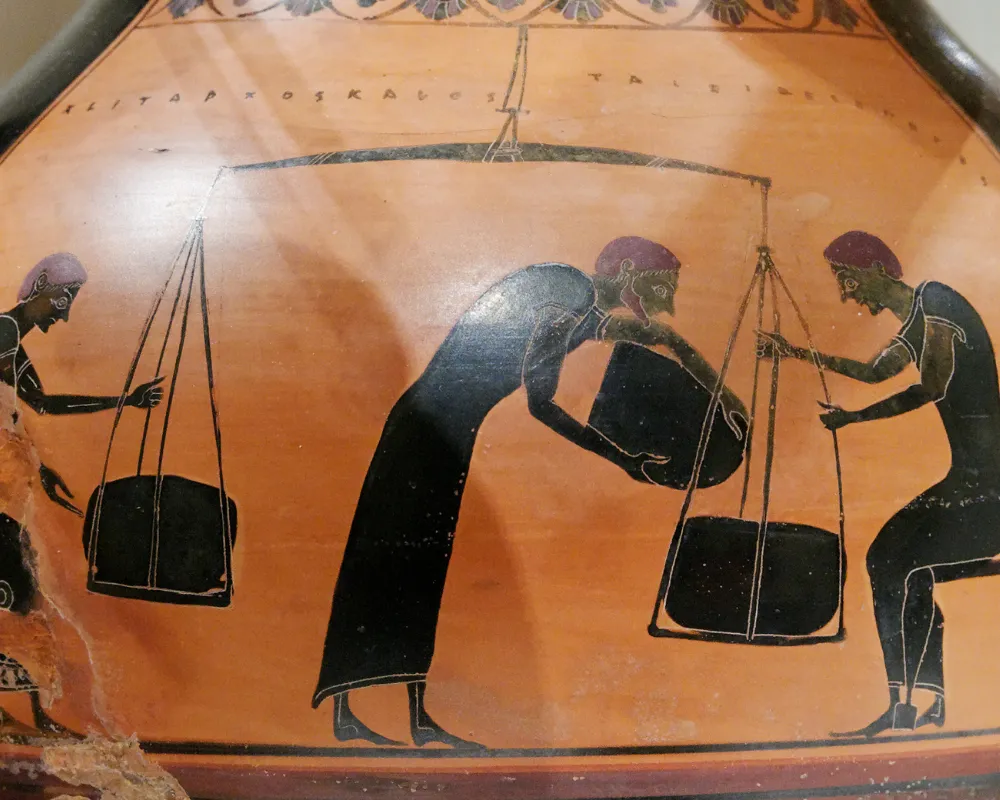
Source: Wikimedia Commons
This booming economic development was reflected in the salaries of the commoners. On average, an ancient Greek citizen would earn 12 kg of wheat in those days, which was nearly four times higher than that of a typical Roman citizen. The common citizens in Rome used to earn 3.75 kg of wheat in one month.
Women In Sparta Were Much Freer
Even though the freedoms of women in ancient Greece were slim to none, Spartan women were a tad more liberated. They experienced more privileges and freedom which were otherwise denied by the rest of Grecian women.
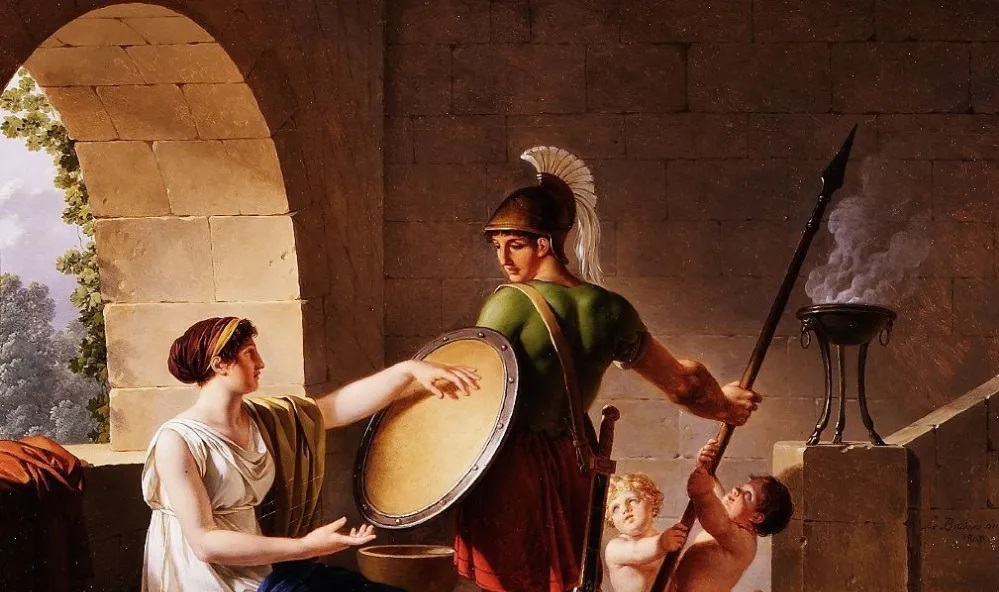
Source: Wikimedia Commons
A female in Sparta could own land and engage in physical activities. They also received an education, which was certainly a special privilege. Spartan women still had to perform chores in their households, but they still retained some freedom unlike their Greek female counterparts.
Spartans Led Martial Lives
Arranged marriage was the norm in Spartan society. Marriages that actually consisted of both parties being in love with each other was quite a rarity. Unfortunately, most of these marriages were shams because the men usually had other partners.
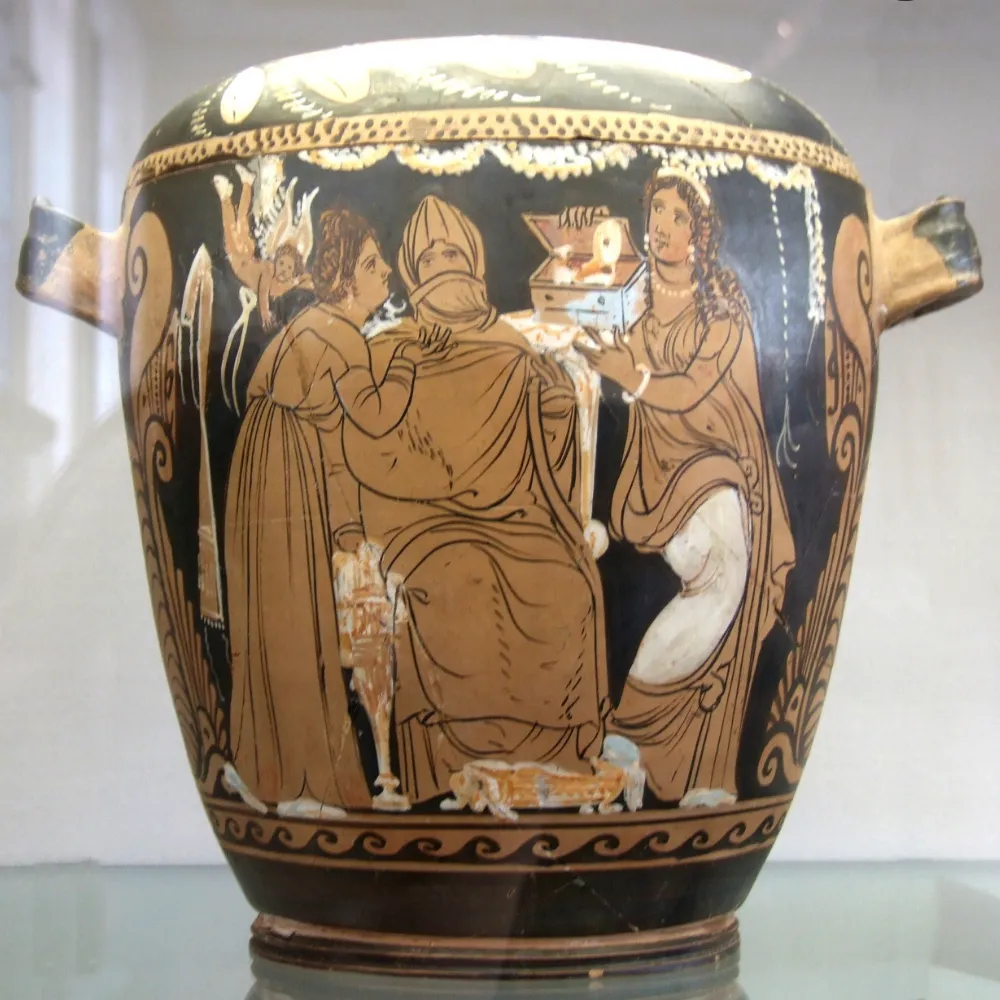
Source: Wikimedia Commons
It was common then for a man to cheat on his wife, since Spartans were punished for remaining faithful to one woman. There was even legal machinery that existed to force youngsters into indoctrination regarding marriage once they reached a certain age. And, for those who chose to marry later on in life, well, it was not a good outcome for them.
The No Females Allowed Policy Of The Olympics Had A Loophole
Although women in general weren’t allowed in the Olympics, neither as a participant or as an observer, there was actually a small loophole. It was a loophole that enabled women to ride horses in equestrian games.
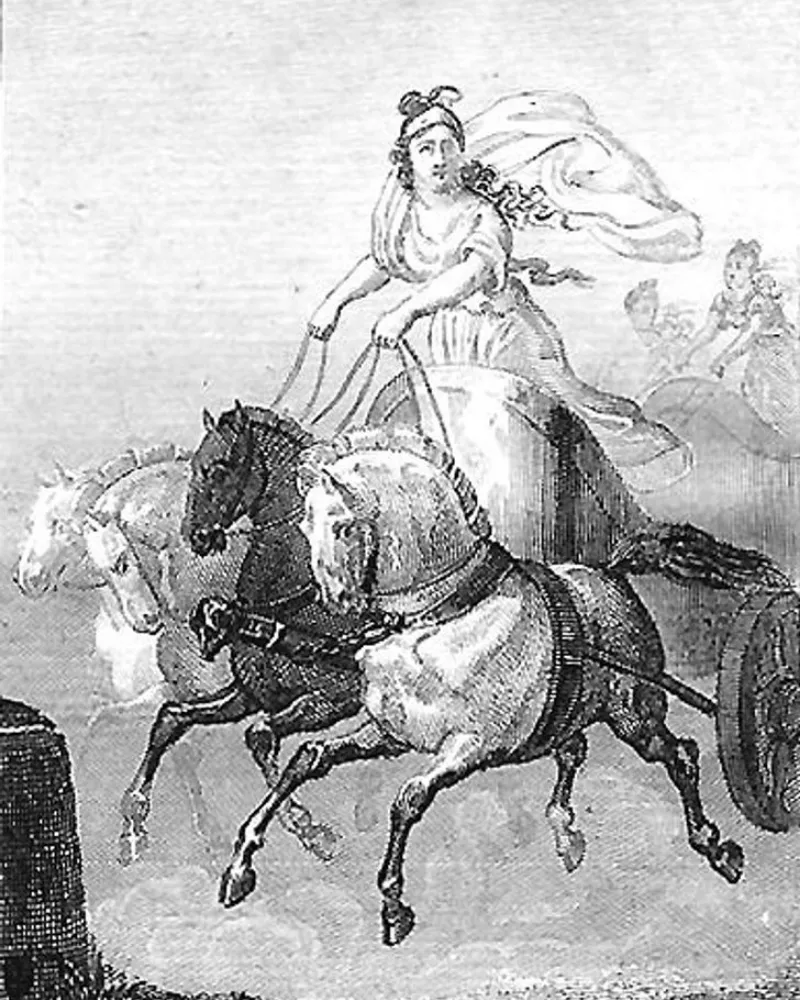
Source: ancient-origins
The Spartan princess, Cynisca, won the event without participating in it. So, this rule was leveraged by her to serve as a historical moment in women’s history. Cynisca’s horses received first place in the Olympic games twice in 396 and 392 B.C.E, which clearly established her title as an obvious winner.
Salt Was Precious For The Ancient Greeks
Similar to the Romans, the Greeks utilized salt as a trading tool, and they even sold slaves in exchange for it. Also, they believed that nobody should trust a man without first having a peck of salt with him. Hey, they sure sounded like some smart people.
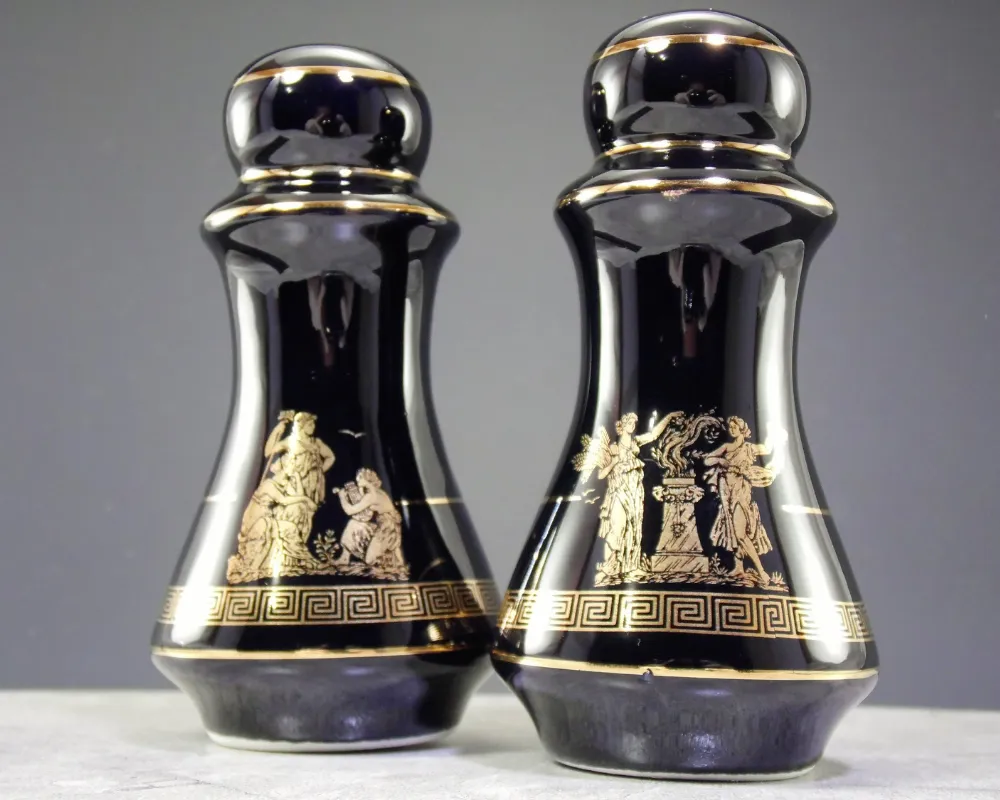
Source: Wikimedia Commons
“Alas” is a Greek word for salt. They are also known to have invented the phrase “not worth his salt.” Salt was a precious commodity for the ancient Greeks and they used it to make soaps and detergents with animal fats and ashes.
All Of Ancient Greece Anticipated The Olympiad Event
One of the most anticipated events in all of Greece was the Olympiad, with masses of people coming to attend it. The Olympics were beloved by the ancient Greeks and it was such an important social event that they cleared their calendars.
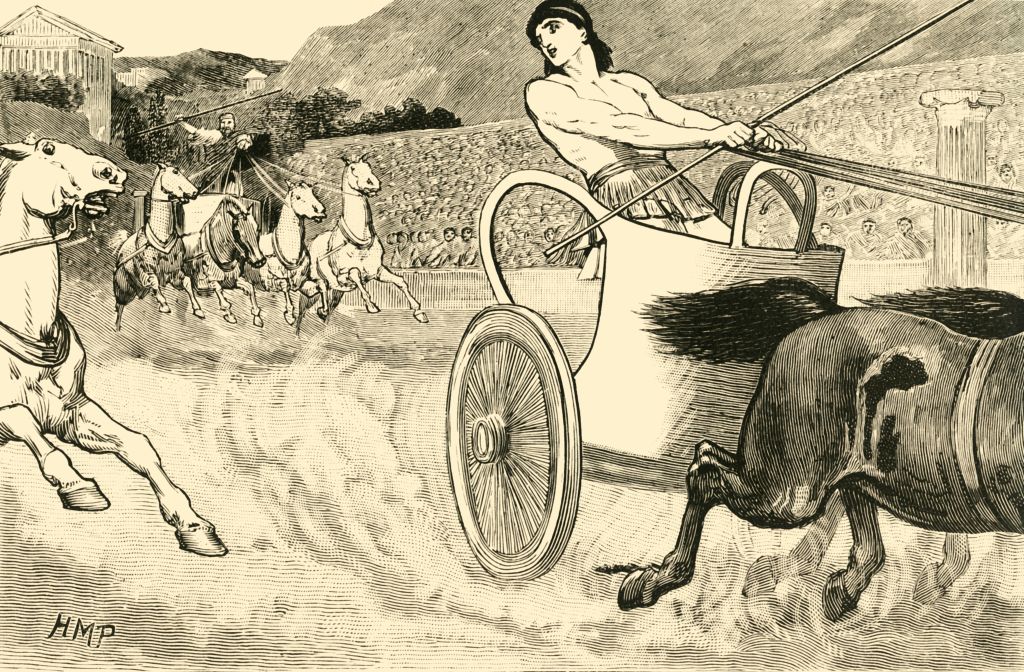
Source: The Print Collector/Heritage/ Getty Images
The Olympiad was held once every four years, usually in the July or August months. Referring to the Olympic Truce (a declaration of peace that postponed the host nation’s war to three months) from earlier, the Olympiad event typically followed it.
The Practice Of Shaking Hands Was Invented By Them
It’s rooted in some truth that the ancient Greeks revolutionized the way people from all over the world greeted each other. Yes, they presented the world with handshakes. This can be seen in various ancient Greek paintings, artworks, as well as sculptures.
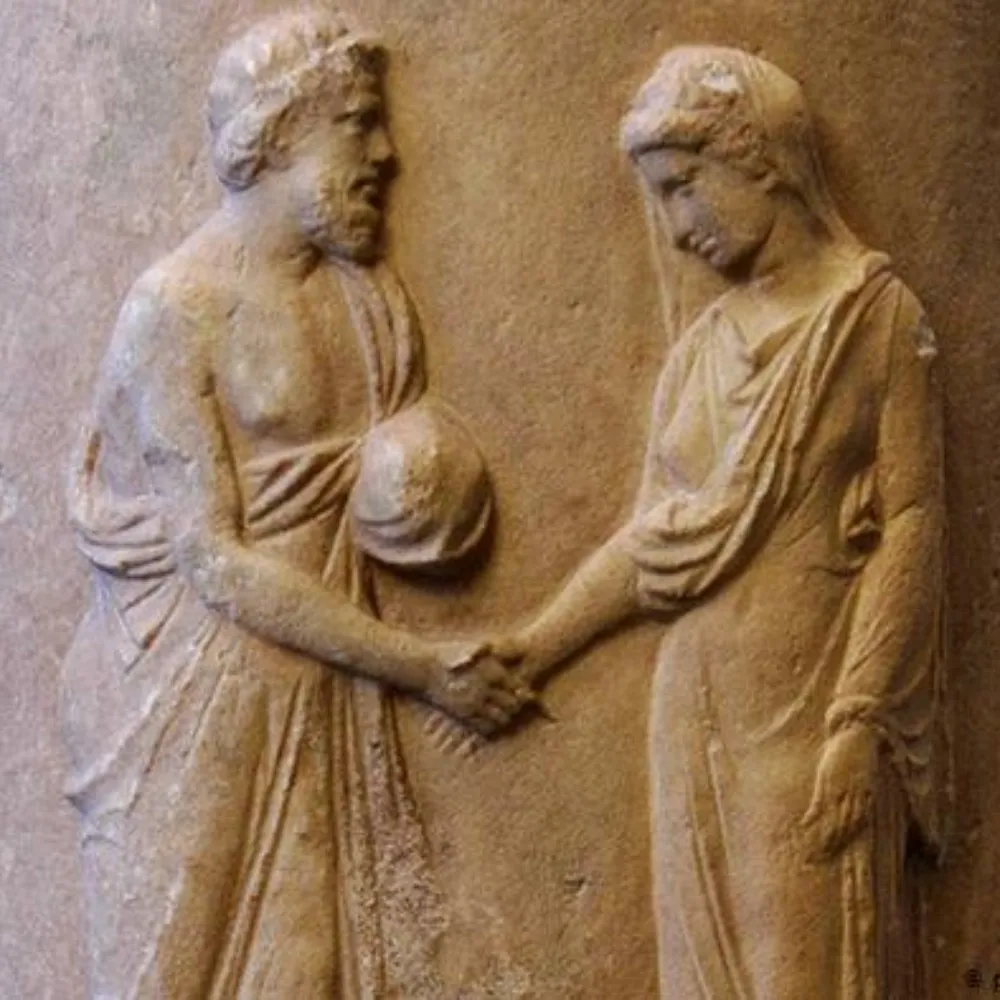
Source: Alamy
Shaking hands was called “dexiosis” in ancient Greek. Many different art forms presented Hera shaking hands with the Greek Goddess of Wisdom herself, Athena. Although, the art of shaking hands was only performed between equals.
Women In Ancient Greece Were Fashion Savvy
The women of ancient Greece were very fashion forward. Ok, so the trend of unibrows and statement brows (with much thanks to model and actress Cara Delevingne) have been popular for some time. However, ancient Greek women were the first to start this sought-after trend.
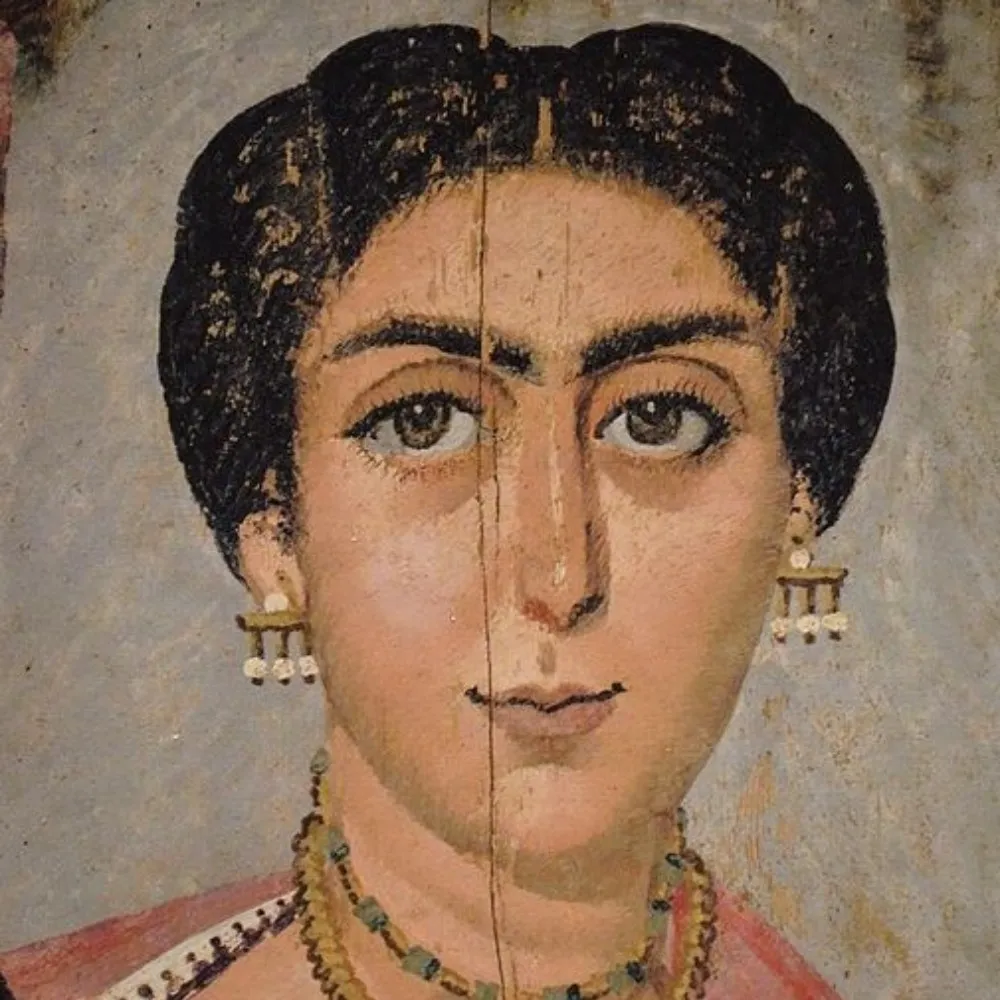
Source: Wikimedia Commons
The unibrow for ancient Greek women in their culture was a symbol of intellect and the ideal of beauty standards. Women who didn’t have unibrows would draw them using makeup. To achieve this look, they applied soot, black powder, or even went as far as to stick goat hair between their eyebrows. Talk about going to extremes!
Siestas Were A Big Hit In Ancient Greek Culture
Unlike most Westerners, the ancient Greeks heavily believed in leisure time and the therapeutic benefits of an afternoon siesta. It was a customary practice in ancient Greece to take a power nap in the afternoon, specifically during the summer.
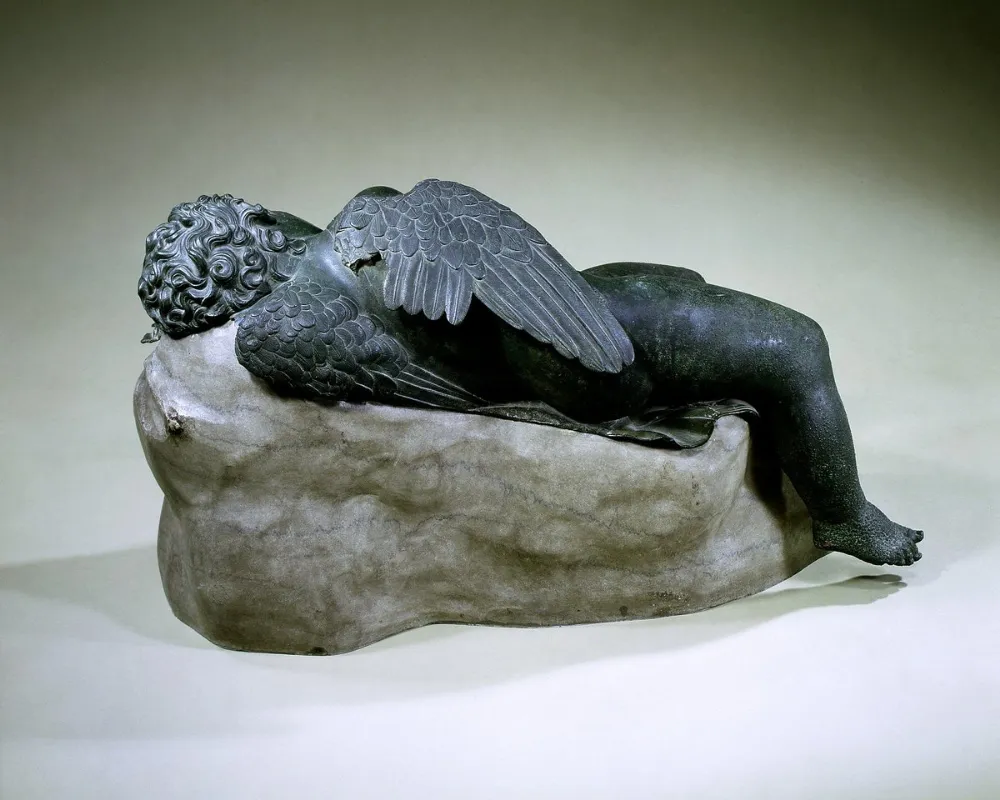
Source: thecultureconcept.com
The Greeks maintained the belief that napping during the afternoon can prevent the body from getting too worn out. And, after their naps, they also ate something and continued working until dusk. They definitely had the right idea.
The Word ‘Idiot’ Was Invented By Them
Etymologically, the word “idiot” derived from the Greek idiōtēs (a private person). At the time, the word had a completely different meaning than it does today. In its initial form, the word was used to refer to anybody who kept themselves separate from anything political.
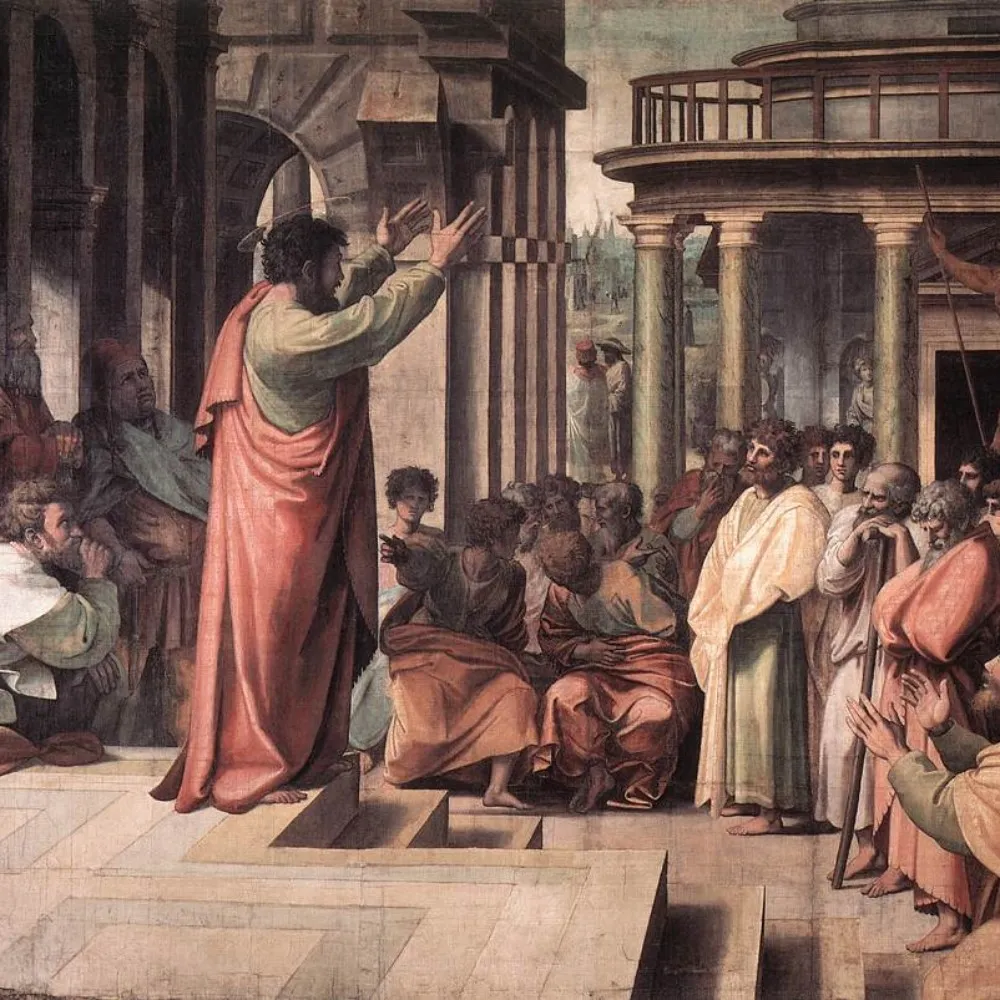
Source: Wikimedia Commons
That must have been extremely hard because the ancient Greeks thrived on politics. In our world, ‘idiot’ evolved into meaning a person who didn’t have much intelligence. Surely, you can connect the dots between the prior meaning and what it stands for today.
